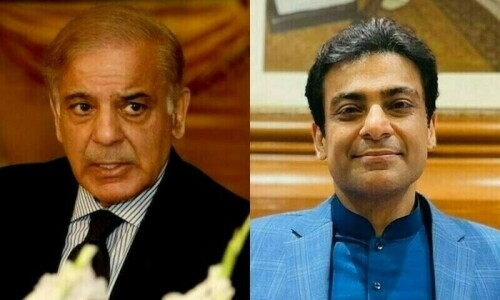ISLAMABAD: The Supreme Court asked the federal and Sindh governments on Wednesday to explain whether ‘haris’, including women and children, are still detained by wealthy landlords in their private jails as bonded labour in the province.
A two-judge bench, headed by Justice Anwar Zaheer Jamali, which had taken up a petition filed in 1996, directed Advocate General of Sindh Fateh Malik to appear before it and explain whether the Pakistan Bonded Labour System (Abolition) Act 1992 also encompasses elimination of bonded labour in the agricultural sector.
Also read: Unstoppable: Two workers risking lives to fight bonded labour in Sindh
He is also required to inform the court about the measures being taken by the Sindh government to end bonded labour, if it still existed.
Attorney General Salman Aslam Butt was asked to assist the court when it would take up the matter after a month.
The joint petition was filed by Advocate Akram Sheikh on behalf of Abdul Hafeez Qureshi, Fahmida Qureshi and Ms Sajida of the Sindh Qaumi Saath (SQS), a social welfare organisation working for the welfare of haris in Sindh.
Earlier, the case had been taken up in 2000 by a bench headed by then chief justice Irshad Hasan Khan. The petitioners had accused landlords of running private jails and sought a court order for then influential politicians in Mirpurkhas and Sanghar districts to release haris from their private jails.
Know more: Trapped for $500 debts: the misery of Pakistan's 'slaves'
The petitioners had alleged that the politicians were using thousands of labourers, including women and children, as bonded labour on their lands in Digri area of Mirpurkhas and in Sanghar. They said that when the SQS launched a movement for liberation of the haris in May 1996, the landlords had incited members of the then provincial assembly against the petitioners. The landlords also got false cases registered against SQS members, the petition alleged.
The petitioners recalled that from 1990 to 1992, the SQS had highlighted the ordeal of haris languishing in jails allegedly run by Ghulam Husain Khokhar, a landlord in Tando Allahyar, Hyderabad.
They said that then prime minister Nawaz Sharif had taken notice of the matter and set them free. He also gave 12 acres of land to each family in Badin district, but since there was no water available there, the land could not be tilled or cultivated.
SINDH GOVT REACTION: Likewise, the petitioners said, when the SQS drew the attention of the Benazir Bhutto government from 1993 to 95 as well as the Amnesty International to the issue of bonded labour, the Sindh government got annoyed and started harassing and arresting members of the organisation. The then PPP-led Sindh government had also misused and exploited the Sept 1996 self-immolation by two women, Zebunnisa and Hakim Zadi, and blamed the SQS for the incident.
The petition pleaded that it was a constitutional duty of the state to protect its citizens which, it alleged, the respondents – the federal and provincial governments – were denying to them. It said the respondents were acting against the fundamental spirit of the constitution as enshrined in the Objectives Resolution.
In July 2013, then chief justice Iftikhar Muhammad Chaudhry had warned the Punjab IG that the district police officer (DPO) concerned would be held responsible if the court received any complaint about bonded labour or habeas corpus application.
The court had also ordered the IG to circulate the copy of its order among all law-enforcement agencies, especially the DPOs, to ensure that no case of bonded labour existed in their jurisdiction.
The chief secretary of Punjab was ordered to ensure that within two weeks of the receipt of the order, all labourers working in kilns, subject to fulfilment of the requirement of the law, were registered as recipient of social security and the owners paid their contribution to the social security department.
The court had issued the order on an application filed by Rasoolan, wife of Mohammad Aslam.
Published in Dawn January 15th , 2015
On a mobile phone? Get the Dawn Mobile App: Apple Store | Google Play













































